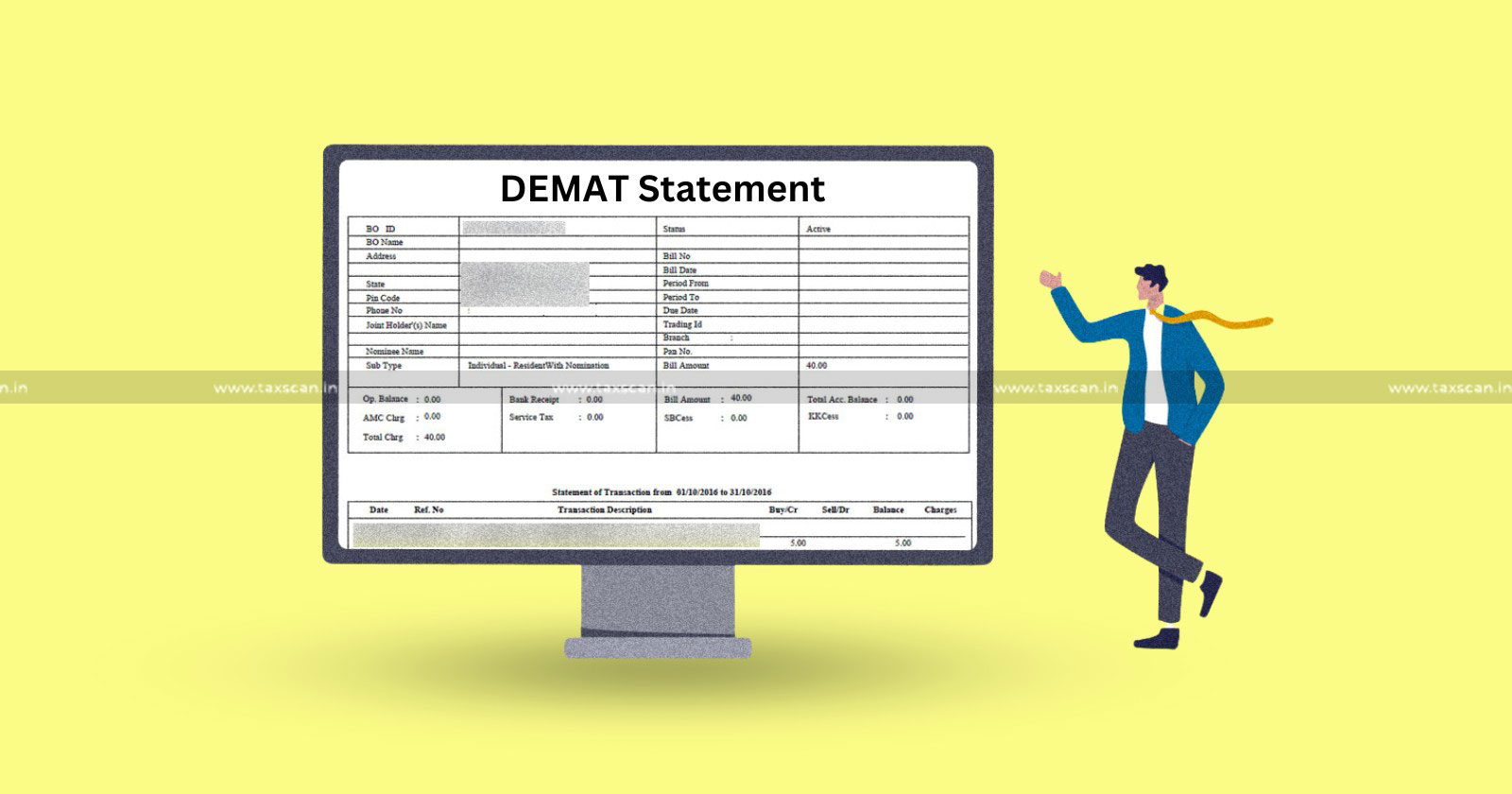Setting-Off Short-Term Capital Loss in Shares where Securities Transaction Tax Paid: ITAT deletes iShares MSCI India’s ₹270 Cr Income Addition [Read Order]
The Tribunal relied on judicial precedents which confirmed that no statutory requirement exists to prioritize set-off of STT-paid losses with STT-paid gains
![Setting-Off Short-Term Capital Loss in Shares where Securities Transaction Tax Paid: ITAT deletes iShares MSCI India’s ₹270 Cr Income Addition [Read Order] Setting-Off Short-Term Capital Loss in Shares where Securities Transaction Tax Paid: ITAT deletes iShares MSCI India’s ₹270 Cr Income Addition [Read Order]](https://images.taxscan.in/h-upload/2025/09/20/2088968-short-term-capital-loss-income-addition-msci-securities-transaction-tax-taxscan.webp)
The Income Tax Appellate Tribunal (ITAT), Mumbai, has held that short-term capitalloss incurred on transactions where Securities Transaction Tax (STT) was paid can be set off against short-term capital gains from transactions where STT was not paid.
The appellant, iShares MSCI India UCITS ETF, a company incorporated in Mauritius and registered with the Securities and Exchange Board of India as a Foreign Portfolio Investor, had filed its return of income for Assessment Year 2022–23 declaring a total income of ₹270,76,67,910 crore. The return included capital gains computation wherein short-term capital losses from STT-paid share transactions were adjusted against short-term capital gains from non-STT transactions, resulting in lower taxable income.
The case was selected for scrutiny, and the Assessing Officer (AO) disputed the assessee’s computation methodology. The AO held that short-term capital losses from STT-paid transactions could only be adjusted against short-term capital gains from STT-paid transactions, and not against gains on non-STT transactions taxable at a higher rate.
 Also Read:Brought Forward Business Loss Cannot Be Set Off Against Short-Term Capital Gains u/s 50 of Income Tax Act: ITAT [Read Order]
Also Read:Brought Forward Business Loss Cannot Be Set Off Against Short-Term Capital Gains u/s 50 of Income Tax Act: ITAT [Read Order]
Based on this restrictive interpretation, the AO passed an impugned order computing the net short-term capital gains amounting to ₹2,95,96,810 taxable at 15% under section 111A of the Act and the net short-term capital gains amounting to ₹4,60,58,240 taxable at 30% under section 115AD of the Act.
When the assessee raised objections before the Dispute Resolution Panel, Mumbai (DRP), the Panel affirmed the AO’s approach and confirmed the addition, compelling the assessee to approach the Tribunal.
The assessee represented by Anish Thacker and Pranay Gandhi, argued that Section 70(2) of the Income Tax Act, 1961, allows short-term capital loss to be set off against short-term capital gains computed under Sections 48 to 55 of the Act, without differentiation between STT-paid and non-STT transactions. It was emphasized that the law does not prescribe any hierarchy for such set-offs.
Reliance was also placed on judicial precedents including the Tribunal’s decision in iShares MSCI EM UCITS ETF USD ACC vs. DCIT (2024) which followed the decision of the Delhi High Court in CIT v. Rungamatee Trexim Pvt. Ltd. (2008) among other Tribunal decisions supporting the taxpayer’s position.
 Also Read:Stock Exchange and Demat Records Prove Share Transactions: ITAT deletes Additions u/s 153A [Read Order]
Also Read:Stock Exchange and Demat Records Prove Share Transactions: ITAT deletes Additions u/s 153A [Read Order]
The Revenue represented by Satya Pal Kumar, and Krishna Kumar, defended the AO’s order and the DRP’s confirmation. It was contended that the Income Tax Rules provide distinct treatment for gains taxed at different rates, and therefore losses from STT transactions must first be set off against STT gains.
The Bench comprising Judicial Member Sandeep Singh Karhail and Accountant Member Vikram Singh Yadav, observed that Section 70(2) of the Act merely refers to “similar computation” of income and does not carve out any distinction between STT-paid and non-STT transactions. It was noted that the appellant’s method of set-off was in line with established judicial precedents, holding that the AO’s restrictive interpretation was unsustainable.
Therefore, the Tribunal directed acceptance of the appellant’s computation methodology and deleted the addition of approximately ₹270 crore.
 Also Read:Share Capital from Alleged Shell Companies Accepted as Genuine: ITAT quashes Income Tax Revision u/s 263 [Read Order]
Also Read:Share Capital from Alleged Shell Companies Accepted as Genuine: ITAT quashes Income Tax Revision u/s 263 [Read Order]
Apart from the principal dispute on the set-off of short-term capital losses, the assessee also raised grounds relating to arithmetical errors in the computation of income, short grant of credit for tax deducted at source (TDS) and the levy of interest under Sections 234A to 234D of the Income Tax Act, 1961.
The Tribunal observed that these issues were either arithmetical in nature or consequential to the main adjudication. Accordingly, these grounds were restored to the Assessing Officer for verification and correction wherever necessary.
The ground relating to initiation of penalty proceedings under Section 270A was dismissed as premature.
Therefore, the appeal by the assessee was partly allowed for statistical purposes.
Support our journalism by subscribing to Taxscan premium. Follow us on Telegram for quick updates


